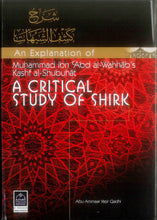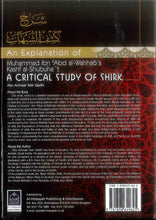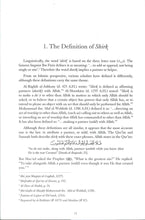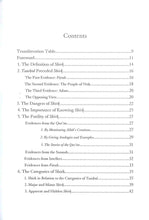Author:Abu Ammaar Yasir Qadhi
Book By Language:English
Binding:Hard Cover
Pages:210
Size cm:18x25
Publisher:Al Hidayyah
Weight:800g
This work, which is a detailed explanation of one of Muhammad ibn Abd al-Wahhab's most important works, deals with explaning and refuting the evidences that were used by certain Muslim groups of his time to justify acts of shirk (the act of associating partners with Allah). It is entitled Kash al-Shubuhat, which literally translates as: 'the clearing of doubts.' Ibn Abd al-Wahhab intended in this work to expose the falsity and speciousness of these arguments by proving that the pagans whom the Prophet (pbuh) fought utilized the exact same arguments and fell prey to the same reasoning as these modern practitioners of shirk did. It is one of the most advanced works on the subject, and over a dozen different arguments and evidences used to justify shirk are presented and then refuted. In order to maximize the benefit of this work, introductory sections concerning other aspects of shirk not mentioned by Ibn 'Abd al-Wahhab have been added by the author. To this end, the work discusses the definitions of shirk, the importance of knowing shirk, the difference between shirk and kufr, the types and categories of shirk, the history of shirk, the evils and futility of shirk, the causes of shirk, and other related topics. In addition, a brief biography of Muhammad ibn Abd al-Wahhab is included as a preface to the text of this book. This work is undoubtedly the most comprehensive study in the English language of shirk, and hence an essential book for thoes who wish to understand this great evil known to man.







